Learning & Exam Strategies
What is the best way to learn?
Write and rewrite information e.g.
- Key ideas and questions
- Mind maps
- Diagrams
- Coloured pens
- Revision cards
- Summary cards
- Definition cards
- Mnemonics
- Jingles
Go over your notes, the more times the better.
Mental imagery
This helps to visualise an image or picture connected with the information you are trying to remember. Think about a familiar walk with landmarks. Then connect the information to be remembered with various points or things along the walkway. When you need to remember the information, think about the route and you should be able to remember the connected bits of information.
Diagrams, pictures and mindmaps
- By changing information into a different form, it helps you to organise your thoughts, visualise information and assists you to remember it.
- Mind-map – select a topic. Draw branches out from the topic which represent main ideas. Use only key words.
- Add further branches to break the idea down into finer detail.
- Use as much colour and as many symbols or pictures as possible.
- Give yourself plenty of space, i.e. use a large piece of paper.
- Practise the mind-map several times.
Exam strategies
- Have you planned your study schedule?
- Have you read the course description and know exactly what you are required to know?
- Have you written a brief list of the major topic areas you need to cover for each subject?
Study schedule
A well planned study schedule should be:
- Detailed – you should have a good idea of what you are going to cover every time you sit down to study.
- Realistic – don’t try to do too much (or too little!).
- Plan for some time off to recharge your batteries.
- Flexible – be prepared to modify your schedule once you get a better idea of how much you can do each day and what works best for you.
- Varied – plan on mixing your study up to make it more interesting.
Some more hints
- As we go through the year subject teachers and Atawhai Leaders will also provide study tips and stratergies.
- Use old exam papers to practise answering questions. See nzqa.govt.nz/ncea/ncea
- Understand the words ‘discuss’, ‘compare’,
‘illustrate’ and ‘explain’. - Begin revision for exams early – do not leave it to the last minute.
- A very useful site when preparing for senior examinations: studyit.org.nz
- The Careers Centre has a range of pamphlets, publications and guides with more information to help you plan for success in examinations.
Please visit: longbaycollege.com/our-school/careers-centre/








